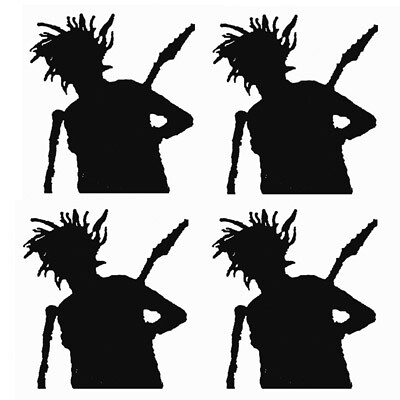"I Always Felt Like I Didn't Wanna Be Like Other Niggas"

"Colored peeps, can’t you see: We have been forced to define ourselves—culturally—based on the organizing principles of radio stations and record stores, because cash rules everything around us. It’s all marketing and the ability to spoon-feed you what they tell you you want. Black people, I’ve got something to share: Y’all are the most creative people on Earth, but y’all are even better at consuming. Y’all need to pay tribute to history instead. Remember, they can’t sell you something you already own."—Sacha Jenkins
In keeping with the "black-folk-come-in-all-different-flavors" motif:
Today I was flipping through the visual shit sandwich that is Savoy magazine when I came across an article titled "Generation Be: Breaking Down the Black Monolith." Expounding on a study conducted by Dr. Patricia Raspberry, a social psychologist and brand planner for a New York-based company called PortiCo Research, the article, in attempts to show the diversity among African-American consumers, identified four different types of blacks: Neo-Bohemians, Boyz-N-Girlz in the ‘Hood, Black Princes/Princesses (BAPs), and Urban Mainstreamers. Despite the piece being, among other things, way too SistaGurl for anyone not of the opinion that Terry McMillan is God’s gift to prose, I must admit that it got me thinking: What other types of blacks are out there that aren’t necessarily being represented when Fortune 500 companies, like Wal-Mart, or McDonald’s, try to appeal to the so-called "urban" demographic? Just ask independent filmmaker James Spooner.
Afro-Punk, Spooner’s 2003 film exploring "race identity within the punk scene," gives voice to black punks, be they mildly famous figures, such as ex-Dead Kennedys drummer D.H. Peligro, or anonymous fans. Aware that a significant number of viewers may be new to this concept, Spooner focuses on several key characters—most notably, Moe Mitchell, of the racially charged CIpher, and Brooklyn’s Tamar Kali—whose interchangeable roles in both hardcore and black, mainstream circles allow them to serve as de facto translators. (Ms. Kali, whose music is among the soundtrack’s most accessible, admits to growing up on rap as well as rock; Mitchell—the only black in his band—espouses pro-black beliefs, and is president of Howard University’s oldest Afro-centric organization.) The bulk of these kids, though, apparently grew up with little to no interaction with other blacks. (TV on the Radio’s Kyp Malone, at one point, claims that his parents must have been experimenting with finding the "whitest places in America.")
Needless to say, I liked it; Dr. Raspberry's Boyz-N-Girlz in the 'Hood (!) may not.







<< Home